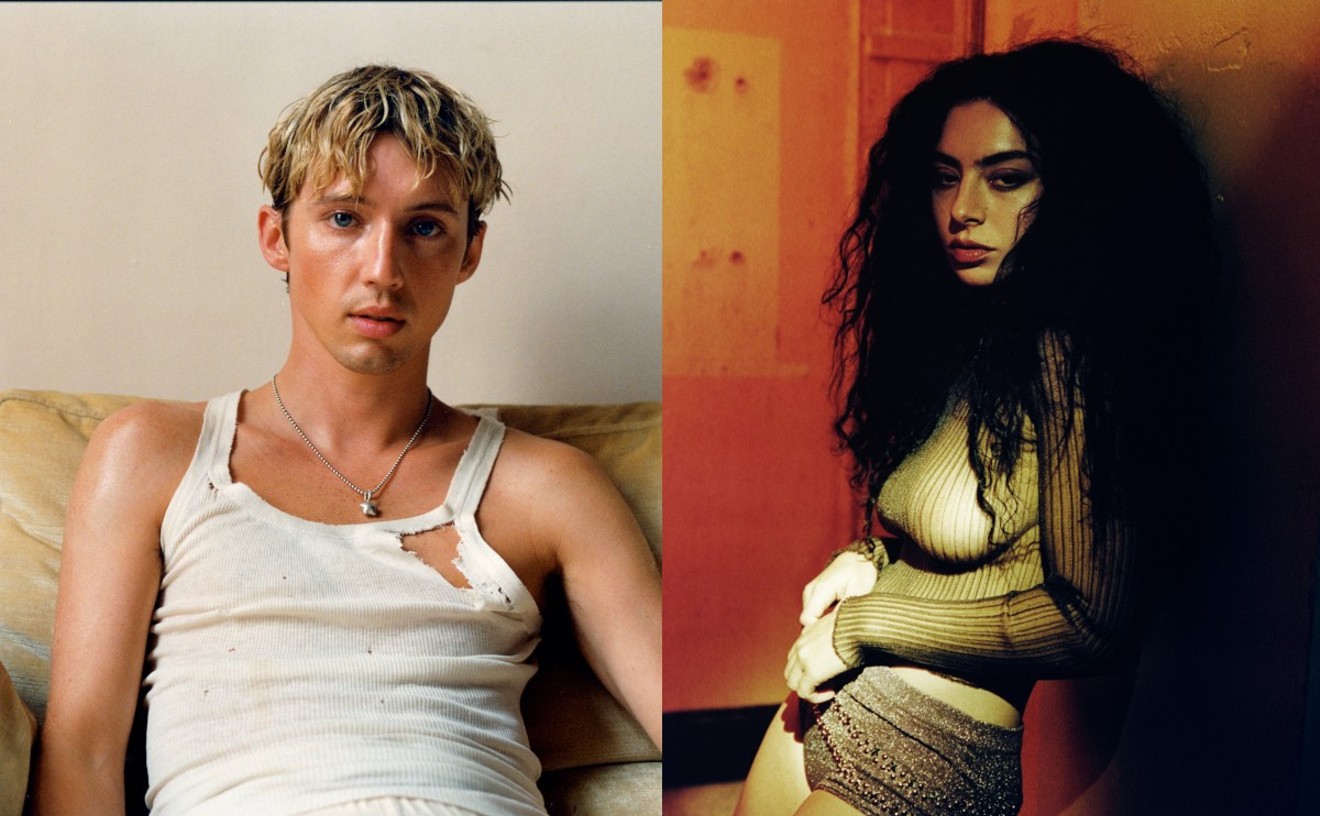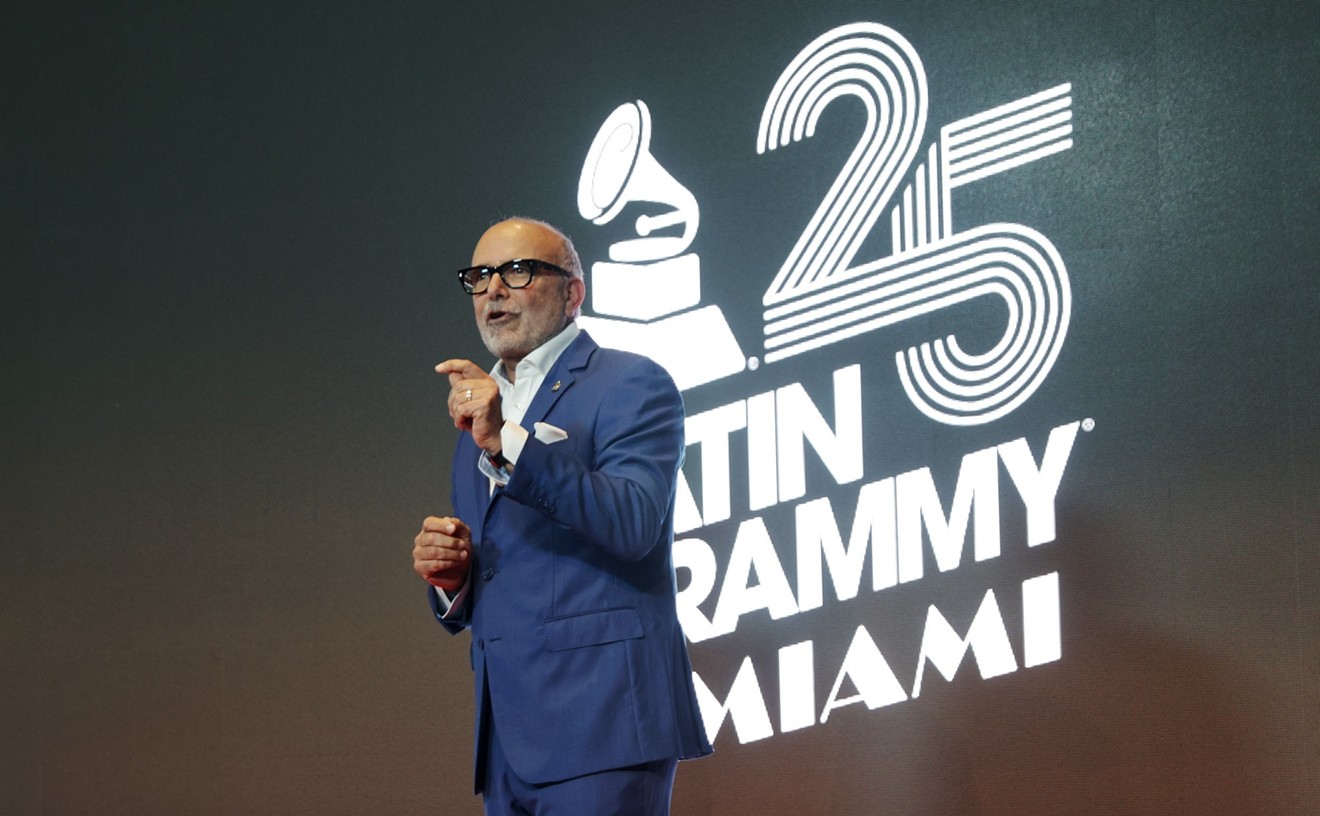"Yeah, yeah, the money's great with the movie stuff," he confirms. "The money's great with the touring, too. The money's great when you're doing anything where people pay you." For the better part of the last decade he hasn't committed to any extensive touring, a far cry from his glory days, when the jazzman cut his chops by performing with the dedication of an Olympic athlete.
Born in Philadelphia in 1951, Clarke moved to New York City as a young man and wound up working for saxophonist Pharaoh Sanders, who nurtured his experimental side. Clarke wound up working with drummer Art Blakely, then saxophonist Stan Getz. Getz was the last horn player Clarke would partner with for quite some time, for while in Getz's band, he and keyboardist Chick Corea began a long-standing alliance of their own. They began the seminal fusion unit Return to Forever in 1971.
Powered by breathtaking instrumental proficiency, Latin-tinged exotica, and an embrace of synthesizers, Return to Forever turned over players as often as bedsheets, though Clarke remained an integral member throughout the '70s. Arguably, the group's tightest lineup featured the core of Clarke, Corea, guitarist Al DiMeola, and drummer Lenny White. An Internet campaign designed to convince temperamental keyboardist (and noted celebrity Scientologist) Corea to host a return to Return to Forever continues to gain steam.
"It's [the petition] directed at Chick, 'cause he's the guy who doesn't want to do it. Every couple of years, one guy doesn't want to do it. I went through my period," Clarke explains, "everybody else did, and now it's Chick."
The late 1970s was the last time fusion acts raked it in. Cerebral albums from Weather Report and Return to Forever moved as many units as prog-rock monsters Yes and Emerson, Lake, and Palmer. In fact, Return to Forever's first five albums all reached the Top 40 of Billboard's pop chart. DiMeola, Clarke once said, focused his playing on his goal of making enough cash to buy a Ferrari. Unfortunately, critics charged, much of his playing bears that out.
"He did want a Ferrari, and he got a Ferrari," says Clarke. "He was a young guy playing a guitar meeting a lot of women [DiMeola was 19 when he joined RTF] and he should have had a Ferrari." There was money to be made within jazz, but by the 1980s its location had switched. Clarke was always particularly adept at sniffing it out. He found time for five albums with keyboardist George Duke, a relaxed and harmonious pairing that moved him steadily away from jazz into more commercial terrain. The Clarke/Duke Project's funkified "Mothership Connection" was its biggest hit.
For a time, Clarke stood at the center of intelligent, notoriously complex, and always-innovative jazz-rock fusion. Among the first to introduce blistering thumb-popping as a funk essential, he also pioneered fretless bass soloing and invented the Piccolo bass (essentially an electric instrument tuned an octave higher than usual). By the time Return to Forever began to fade, he embarked on a series of sometimes indulgent but generally interesting solo albums.
By then, Clarke had introduced a new approach to the instrument that thrilled rock geeks as much as jazz snobs. On his signature piece, the title track of 1976's School Days, he begins with a cog-and-gear-meshing funk riff both repetitive and mesmerizing. As the band comes in and the guitar solos, the riff keeps hammering away. After a brief drop-off, Clarke pops a solo for the record books, building and building to a big-bang cascade. The main riff again takes over as all the members take turns soloing on top of it.
Around that time, Clarke became friends with late South Florida legend Jaco Pastorius, whose flamboyant basswork once traveled to an even loftier plane.
"We were real close, real close," says Clarke, thinking back on his time with Pastorius. "I think the last time I actually physically saw him was in Fort Lauderdale. We were at a club together, hanging out. It was a very tragic story with him. When his mental illness became more acute, he was at the mercy of the hawks out there."
Always interested in advancing technology, embracing trends, and dabbling in hip-hop, Clarke notices that he's become fodder for the genre itself. "Jay-Z sampled me on his last album," he reports. "We had to bang on his door to get him to pay, but he finally did pay up."
Clarke names Q-Tip and "that whole Tribe Called Quest thing" as being among more knowledgeable hip-hop artists, He gives props to Public Enemy, recalling a meeting with them years ago: "I was in a restaurant and saw that guy Chuck D and, uh, the little brother..."
Flava Flav?
"Yeah, that guy. He came in and ran down every Return to Forever album, every solo record I had at the time, named all the tunes... I was amazed. I mean, a guy wearing a clock around his neck -- I was surprised he knew his own name."
Clarke's last chance to break into radio on his own was a rockist effort from 1985 called Find Out!, which included a steaming, funked-over attack on Springsteen's "Born in the USA." A masterful, declamatory jam, the tune was about to introduce Clarke to a new audience -- again -- when an abrupt regime change at Columbia/Sony and a rash of firings left the album stranded.
"Find Out! was my most commercial-sounding, and least popular, album," Clarke says.
By that time, he was beginning to channel his compositional sense into safe, if not always respectable, stocks. Pee-Wee's Playhouse came around, as did a gig as musical director for a Barry Manilow television special. By 1995, a label called Epic Soundtrax released Stanley Clarke at the Movies, a collection of themes he'd scored for Passenger 57, Boyz N the Hood, Poetic Justice, Little Big League, Higher Learning, Panther, and What's Love Got to Do With It. His latest film composition was for last year's Eddie Griffin comedy, Undercover Brother. More recently, Angela Lansbury has called on him to provide Celtic soundtracks for her last several two-hour Murder She Wrote TV events. "It has absolutely nothing to do with any of my music, culturally, but the beauty of it is, you're a neutral person," he says.
Listeners are bound to make discoveries on Clarke's new album, 1, 2, To The Bass. For unfathomable reasons, Oprah Winfrey appears on it. George Duke, Q-Tip, and Joe Satriani are among the guest musicians. Though his distinctive electric bass work is in full effect on 1, 2, To The Bass, for years Clarke has threatened to put down the plugged-in version for good, retiring it in a dignified return to the stand-up bass.
"I think in another four, five years that'll be it on the electric bass for me," he says. "The acoustic bass is much more noble. I'm too old! It's the worst thing in the world to see an old black man playing the electric bass!"










